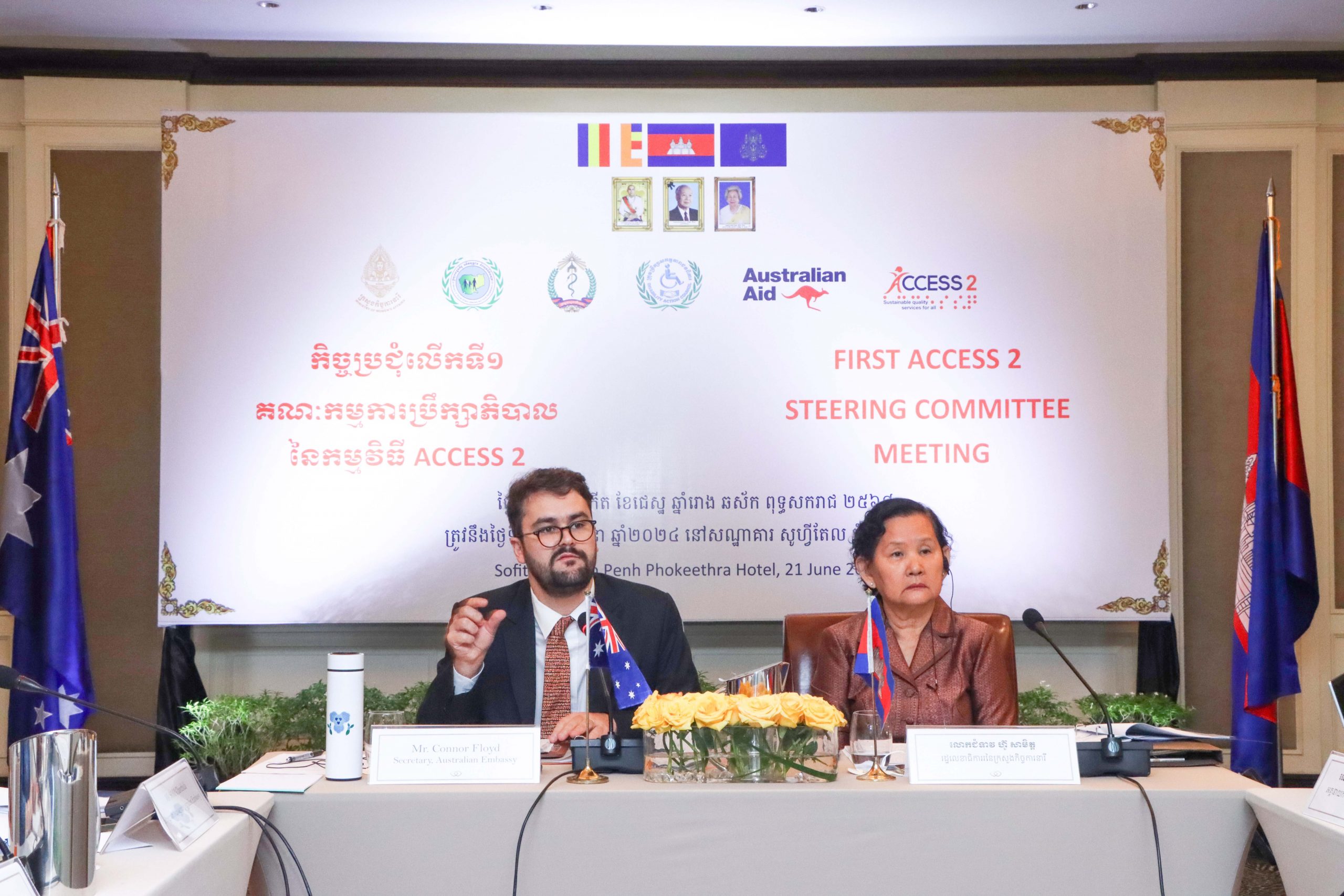On 21 June 2024, the ACCESS 2 program held its first Steering Committee meeting. The members comprised of the Ministry of Social Affairs, Veterans and Youth Rehabilitation (MoSVY), the Ministry of Health (MoH), the Disability Action Council (DAC), the Ministry of Interior (MoI) and the National Committee for Subnational Democratic Development Secretariate (NCDDS). Further representatives in attendance were the ACCESS 2 Strategic Implementing Partners (SIPs), chairs of Provincial Coordination Committees from four target provinces, DFAT & ACCESS 2 team members. The ACCESS 2 Steering Committee (ASC) is the highest governance structure for the program and is held annually.
 The ASC members act as strategic agents, that lead and engage with key stakeholders across the Royal Government of Cambodia, development partners, and other sectoral stakeholders on disability, gender-based violence (GBV), and rehabilitation issues in support of ACCESS 2 program outcomes. During the meeting, the ASC members reviewed and enthusiastically discussed the ACCESS 2 Annual Workplan for Year 2 and the draft Terms of Reference (TOR) for the ASC. The annual workplan for Year 2 was developed in reference to lessons learned, and achievements and challenges encountered in Year 1, hence ensuring that the program continues to evolve effectively and is positioned well to address any emerging issues that may be encountered in its second year of implementation.
The ASC members act as strategic agents, that lead and engage with key stakeholders across the Royal Government of Cambodia, development partners, and other sectoral stakeholders on disability, gender-based violence (GBV), and rehabilitation issues in support of ACCESS 2 program outcomes. During the meeting, the ASC members reviewed and enthusiastically discussed the ACCESS 2 Annual Workplan for Year 2 and the draft Terms of Reference (TOR) for the ASC. The annual workplan for Year 2 was developed in reference to lessons learned, and achievements and challenges encountered in Year 1, hence ensuring that the program continues to evolve effectively and is positioned well to address any emerging issues that may be encountered in its second year of implementation.
Her Excellency Hou Samith, Secretary of State of MoWA, emphasised the importance of the ASC members to review and provide input toward the annual work plan for Year 2, and labelled the annual work plan as a key practical roadmap and vision for all pursued ACCESS 2 program interventions between July 2024 to June 2025. Mr Connor Floyd, Second Secretary of the Australian Embassy, co-chairing the meeting with Her Excellency Hou Samith, stated that the ACCESS 2 program marks a continuation of Australia’s flagship bilateral investment in gender equality, disability, rehabilitation, and social inclusion in Cambodia. ACCESS 2 supports the Royal Government of Cambodia (RGC)’s key policies and strategies. It signifies a shared commitment to improving service delivery for survivors of GBV and persons with disabilities in Cambodia. He appreciated the good collaboration from RGC in the implementation of the program and the swift nomination of government focal points from relevant ministries, institutions, and the sub-national level.
At the end of the meeting the ASC members collectively voted and approved the ASC Terms of Reference (ToR), and the annual work plan for year 2. The session ended with official photos taken of the ASC members and other participants.








